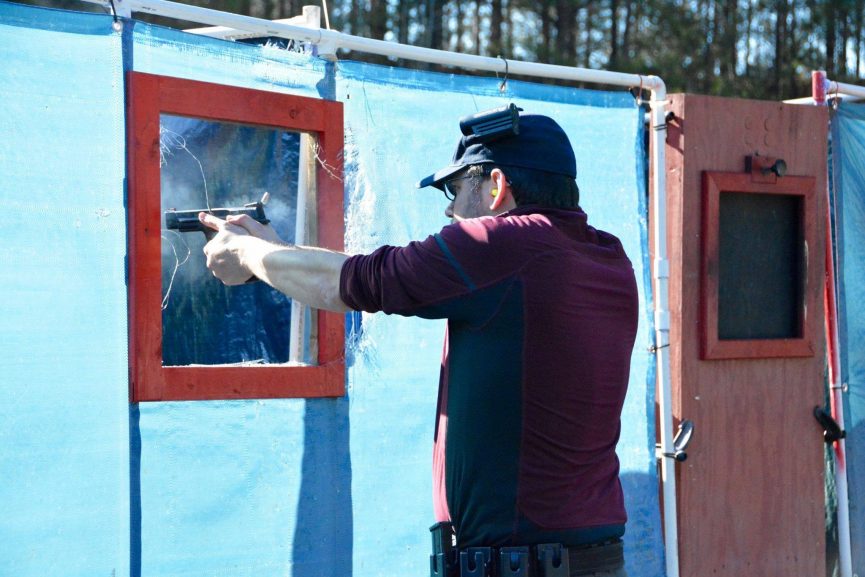I’ve been thinking a lot recently about the concept of the initiative.
The initiative is the idea that, in a two-sided conflict, it is better to be the one acting first and forcing your opponent to react. You set the tone, you drive the tempo, you set the priorities. This lets you choose things advantageous to you while your opponent has to react to limit the damage to them of your choices.
In chess, each player makes one move at a time. You move, he moves, you move, he moves. If you are spending every one of your turns reacting to his move instead of developing your own strategy, you’ve lost the initiative. You will never get the chance to seize an opening in his formation because you’re always too busy blocking some offensive thrust he’s making. He moves, you react. He moves, you react. He is never reacting to your moves. He has the initiative.
My favorite pop culture reference to the initiative is in Black Hawk Down. After the first helicopter is shot down, the prisoner convoy that’s already taking heavy fire will have to be used for an improvised rescue mission. Instead of following the original operation plan, everything has to be adjusted around the new circumstance dictated by the Somali militia and their RPGs. The Americans started the day by acting, but this is when they switch to re-acting. In the book, the omniscient narrator makes the observation, but in the movie the line is given to General Garrison: “We just lost the initiative.”
Often you lose the initiative because you are too overwhelmed with reacting to start taking actions of your own. You’re too limited in manpower, resources, or communication bandwidth to organize both your reactions and your actions, so you focus on reacting to limit the damage of your opponent’s actions. In the case of a particular battle, this is when a withdrawal and regroup is often in order, before you become overwhelmed and the battle becomes a rout. At a strategic level, you don’t withdraw from the whole war, but you try to limit the damage in areas where you’ve lost the initiative and provoke the enemy by initiating action somewhere that’s currently quiet, forcing him to react at least in that area.
In the context of shooting, if you are going to a match because it’s happening “whether you’re ready or not,” you’ve lost the initiative. (Also, if you find yourself saying things like that, you probably aren’t.) That’s not to say this can’t occasionally lead to good results. Every once in a while the defenders hold the line and do damage to the enemy. But the odds of success are much, much lower when you have lost the initiative.
Looking back on roughly the second half of 2016 for me, I lost the initiative. If I had to pick a date, it would be around the end of June when I had trigger finger surgery on my left middle finger. This required a four week break from practice, followed by weakness and soreness that meant I could only practice for ten or fifteen minutes at a time to start.
In early August, when I did start to practice again, the NC Section match was about six weeks away, in mid-September. I had lost the initiative and was playing catch-up to try and be ready for that. As it happened, that went fairly well. I met my goal for the match of placing at 95% or above in my division.
That part went okay because the weather was nice and I had some opportunities to get out and practice. I shot a few matches, but not many.
After the section match, my goal went back to the one I set in December the year before: make GM by the end of the year. Because I already had a 93% average and only needed 95%, I thought I was “good enough” and just needed to go get some classifiers and bring my average up to reflect my “actual skill”. But since getting classifiers required going to matches, until the end of the year I would only go to live fire practice if there wasn’t a match that weekend or I’d already gone to the match the day before.
The feeling at the time was one of my own shooting spiraling out of my control. I never felt ready for each match, but I had to go because I needed the classifiers. It was now or never. I had a potent, draining sense of just being along for the ride and not really being in control of my own hobby. In retrospect, I realize that’s what it feels like to lose the initiative.
So, here I sit, in the middle of January 2017, not having practiced or shot a match in a month. I’m now at the other end of the spectrum. I feel a bit like someone at a skating rink, standing outside watching everyone skate around and around and waiting for the right moment to jump back in. This feeling of having the initiative is invigorating, but the dark side of it is that sitting on the initiative too long is a good way to lose it.
I’ve had a few friends ask me when I’m going to start shooting again, when they will see me at matches again. I try to tell them something but the truth is I don’t know. I know what I don’t want to do: feel pressured to shoot a match just because it’s happening. If I were waving a magic wand, I’d ask for a few freakishly warm weekend days in February to let me get out and have a few good practice sessions, and then start matches up in March when I felt, if not perfectly ready, at least some level of comfort with my skill.
That said, there’s always uncertainty. Part of it is that I’m still trying to figure all this out. The other is the weather. It could be cold for a while or it could warm up tomorrow. At this point, I’d label my plans as “retaining optionality.” If luck is preparation given opportunity, then I’m preparing and keeping my eyes open for opportunity.

